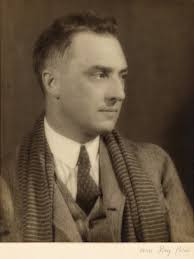
Only Walt Whitman could get away with a poem called “Song of Myself.” Thing is, it wasn’t really about himself. It was about yourselves, too (the “you” in “yourselves” being anyone who reads and enjoys the poem).
In that sense, the pronoun “I” is Romulus to the pronoun “you’s” Remus. They suckle from the same breast.
Gregory Orr, in his book Poetry as Survival, is all in on the pronoun I, a topic I have written about before, though not as well as he does. He quotes William Carlos Williams who, in the preface of his book, Spring and All, writes, “In the imagination, we are from henceforth (so long as you read) locked in a fraternal embrace, the classic caress of author and reader. We are one. Whenever I say ‘I’ I mean also ‘you.’ And so, together, as one, we shall begin.”
Of course, sidetracked from WCW’s train of thought is the niggling details of connection and identification. If your “I” does not compel and fascinate in some way, then your “I” is not “me” after all. It’s just “you” looking foolish in front of a mirror.
Not that Williams had to worry on that count. He was busy eating cold plums, just as his readers were: “So sweet and so cold.”
Back to Orr’s defense of the pronoun “I”: “I’m talking now not about the ‘great’ poems; that is, poems we are told to admire by teachers and authorities. Instead, I mean poems that we personally love deeply. The poems that matter enormously to us and that help us live. Through these poems, we recognize ourselves in an ‘other.’ Through these poems, we are brought to thresholds inside us we might never approach without their help.”
Thinking like so, we can be assured that our solipsistic obsessions with self (I, I, and more I) can work to our artistic advantage, but only if we make room for others. Only then will the pronoun of self be coopted by readers who become the new “I’s” in an author’s poem, a transaction every artist should be more than willing to make. Writing for a reader called yourself and yourself alone, after all, is for the birds. And Emily Dickinson. Who, it turns out, was writing for all of us despite herself.
Paradoxically put, then, the successful “I” is one that is “everybody,” or at least an awful lot of bodies—squatters ready to move in and settle down for good. Once that happens, your first-person point of view poem can safely be called a success. Maybe even “art” if you’re lucky.